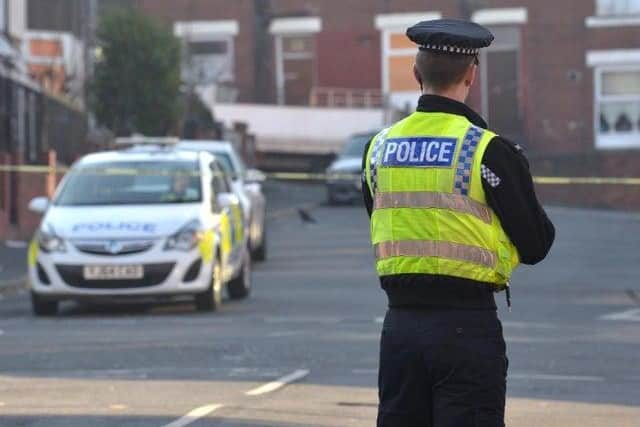How police could fine you £960 for breaking lockdown rules five times - all the fines explained
This article contains affiliate links. We may earn a small commission on items purchased through this article, but that does not affect our editorial judgement.
and live on Freeview channel 276
The Public Health Regulations 2020 bill came into effect on Thursday, granting the police new powers to enforce the lockdown placed on the UK by Prime Minister Boris Johnson.
Current government guidance says that people must stay home as much as possible, only leaving for one piece of exercise per day, or to shop for food and medicine.
Advertisement
Hide AdAdvertisement
Hide AdThose who do leave the house must maintain a social distance of two metres (6 feet) to others at all times and cannot gather in groups or areas with other groups of people.


Those who are classed as key workers may still travel to and from a place of work.
-> Join the Leeds Coronavirus Facebook group for the latest news and info as we get itThose ignoring the guidelines can now be fined an effectively unlimited amount because the fine doubles for each offence.
The rules say:
First time offenders - £60, or £30 if paid within 30 days
Second time offenders - £120
Third time offenders - £240
Fourth time offenders - £480
Fifth time offenders: £960
And so on....
West Yorkshire Police Federation outlined how the guidance will be utilised by police.
Advertisement
Hide AdAdvertisement
Hide AdA statement said: "The guidelines, which have been issued by the government in partnership with the Police Federation of England and Wales, the National Police Chief’s Council, and the College of Policing, will follow a common-sense approach defined by the “Four E’s” – Engage, Explain, Encourage and Enforce:
"Engage – officers will initially encourage voluntary compliance.
Explain – officers will stress the risks to public health and to the NHS. Educate people about the risks and the wider social factors.
Encourage – officers will seek compliance and emphasise the benefits to the NHS by staying at home, how this can save lives and reduce risk for more vulnerable people in society.
Advertisement
Hide AdAdvertisement
Hide AdEnforce – officers will direct individuals to return to the place where they live. This may include providing reasonable instruction of the route by which the person is required to return. Officers may also remove that person to the place where they live, using reasonable force where it is a necessary and proportionate means of ensuring compliance.
Under the new legislation, police officers seeing members of the public breaking quarantine have the power to:
- Instruct them to go home, leave an area or disperse
- Ensure parents are taking necessary steps to stop their children breaking these rules
- Issue a fixed penalty notice of £60, which will be lowered to £30 if paid within 14 days.
Advertisement
Hide AdAdvertisement
Hide Ad- Issue a fixed penalty notice of £120 for second time offenders, doubling on each further repeat offence.
- Individuals who do not pay a fixed penalty notice under the Regulations could be taken to court, with magistrates able to impose unlimited fines.
- If an individual continues to refuse to comply, they will be acting unlawfully, and the police may arrest them where deemed proportionate and necessary.